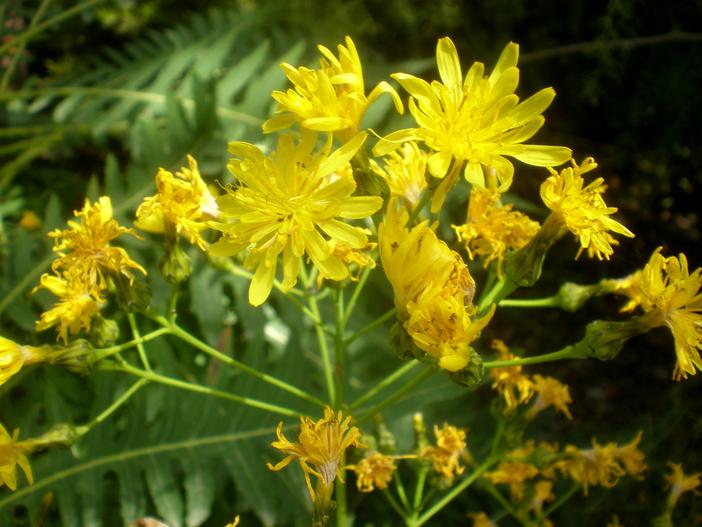Stick Of Blood
(Marcetella moquiniana)
Stick Of Blood (Marcetella moquiniana)
/
/

Consultaplantas
CC BY-SA 4.0
Image By:
Consultaplantas
Recorded By:
Copyright:
CC BY-SA 4.0
Copyright Notice:
Photo by: Consultaplantas | License Type: CC BY-SA 4.0 | License URL: https://creativecommons.org/licenses/by-sa/4.0 | Uploader: Consultaplantas | Publisher: Wikipedia Commons

















Estimated Native Range
Summary
Marcetella moquiniana, commonly known as Stick Of Blood, is an evergreen shrub native to the laurel forests and rocky areas of the Canary Islands. It can vary significantly in size, typically growing to a height of 3-12 feet (0.9-3.7 meters) and a width of 3-10 feet (0.9-3 meters). The plant has a bushy habit with dense foliage and produces small, inconspicuous green and pink flowers during the summer and fall, which are not particularly showy but add a subtle charm to the plant’s overall appearance.
Stick Of Blood is valued for its drought tolerance and ability to thrive in poor, well-drained soils, making it suitable for xeriscaping and rock gardens. It is often used for its textural foliage in urban plantings, coastal landscapes, and as a low-maintenance ornamental shrub in residential gardens. While it prefers full sun or part shade, it is adaptable to a range of light conditions. Gardeners should be aware that Marcetella moquiniana may require protection from cold temperatures in areas outside its native climate. It is generally free from major pests and diseases, but root rot can occur in poorly drained soils.CC BY-SA 4.0
Stick Of Blood is valued for its drought tolerance and ability to thrive in poor, well-drained soils, making it suitable for xeriscaping and rock gardens. It is often used for its textural foliage in urban plantings, coastal landscapes, and as a low-maintenance ornamental shrub in residential gardens. While it prefers full sun or part shade, it is adaptable to a range of light conditions. Gardeners should be aware that Marcetella moquiniana may require protection from cold temperatures in areas outside its native climate. It is generally free from major pests and diseases, but root rot can occur in poorly drained soils.CC BY-SA 4.0
Plant Description
- Plant Type: Shrub
- Height: 3-12 feet
- Width: 3-10 feet
- Growth Rate: Moderate
- Flower Color: Green, Pink
- Flowering Season: Summer, Fall
- Leaf Retention: Evergreen
Growth Requirements
- Sun: Full Sun, Part Shade
- Water: Low
- Drainage: Fast
Common Uses
Drought Tolerant, Low Maintenance
Natural Habitat
Native to the laurel forests and rocky areas of the Canary Islands
Other Names
Common Names: Moquins Marcetella, Palo De Sangre
Scientific Names: , Marcetella moquiniana, Bencomia moquiniana, Sanguisorba moquiniana,
GBIF Accepted Name: Marcetella moquiniana (Webb & Berthel.) Svent.